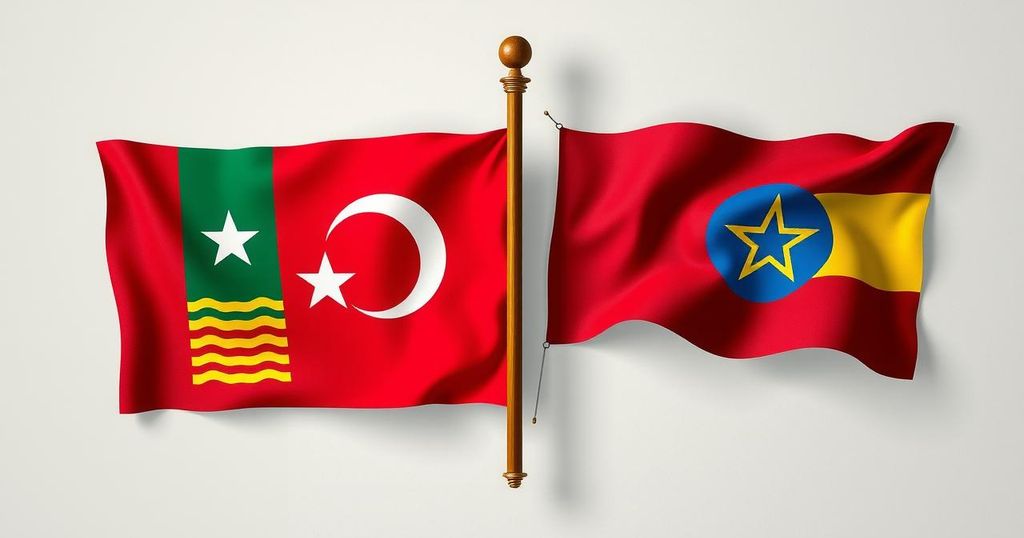Somalia and Ethiopia have restored full diplomatic ties after mediation by Türkiye, concluding a yearlong rift. The Ethiopia-Somalia Ankara Declaration establishes plans for technical negotiations to enhance cooperation, focusing on trade and security against extremist threats. While this development is promising for regional stability, the complexities of the geopolitical landscape persist due to prior tensions and ongoing alliances in the region.
Somalia and Ethiopia have officially restored their full diplomatic ties following a significant visit by Somali President Hassan Sheikh Mohamud to Addis Ababa. This restoration ends a yearlong rift characterized by heightened tensions in the Horn of Africa and is attributed to Türkiye’s successful mediation efforts. Türkiye hosted three rounds of negotiations, culminating in the Ethiopia-Somalia Ankara Declaration, which has been acknowledged by the African Union, the United States, and the European Union. The agreement includes a plan for technical negotiations to enhance cooperation, starting by the end of February 2025 and aiming for completion within four months.
In a joint statement, both leaders pledged to move past former disagreements and foster a future based on “friendship and solidarity.” Their commitment also entails a focus on improving trade relations and increasing collaboration against security threats, particularly against extremist groups such as al-Shabaab. The backdrop to this diplomatic renewal involved a previous discord, arising from Ethiopia’s agreement with Somaliland that threatened Somalia’s territorial integrity and ended with Somalia expelling Ethiopia’s ambassador in April 2024.
Additionally, regional dynamics remain complicated. Prior to President Mohamud’s visit, Somalia’s Foreign Minister Ahmed Moalim Fiqi engaged with counterparts from Egypt and Eritrea, underscoring their alliance against non-coastal state military presence in the Red Sea, implicitly opposing Ethiopia’s naval ambitions. This alliance includes Egyptian troops participating in the African Union Support and Stabilisation Mission in Somalia, highlighting ongoing efforts to combat insurgency within the nation. While the thaw in relations is a positive development indicating a potential for regional stability, the complexity of the geopolitical landscape continues to pose challenges.
The restoration of diplomatic relations between Somalia and Ethiopia comes after a tumultuous period characterized by increased tensions and diplomatic severance. Türkiye’s mediation efforts played a critical role in facilitating dialogue and reaching an agreement that seeks to re-establish cooperative relations. The historical rivalry over territorial rights and maritime access, particularly in light of Ethiopia’s agreement with Somaliland, created an environment where mistrust flourished. The evolving regional dynamics, including the informal alliance between Somalia, Egypt, and Eritrea, underscore the complexity of the geopolitical landscape in the Horn of Africa and the broader implications for stability in the region.
In conclusion, the renewed diplomatic ties between Somalia and Ethiopia, facilitated by Türkiye, signify a hopeful shift towards fostering regional stability amidst a background of historical tensions and complex geopolitical challenges. The commitment to enhanced cooperation in trade and security reveals a proactive approach to address mutual concerns, while the continuing regional alliances highlight the intricate dynamics at play in the Horn of Africa. As these nations embark on a path towards rebuilding their relationship, careful management of their bilateral and regional commitments will be crucial to sustaining this progress.
Original Source: ilkha.com






